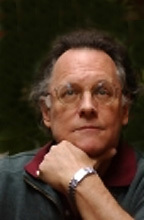
Personal Gardening and Farming Are Becoming Illegal
There once was a time when vegetable gardening and backyard farming were not endangered; these activities were a way of life. However, with booming big agriculture business comes the need for monetary and job security, which means that threatening the productivity of big agriculture will not be tolerated. With Michigan’s recent ban on backyard farming, along with many states regulating the amount of garden space individuals may have in their yard, the ability for Americans to grow their own food and feed themselves is becoming a thing of the past. The future of personal gardening and farming is in danger and may become illegal altogether.
Michigan recently announced that it has made changes to its Right to Farm Act, which allowed home owners to keep a small amount of livestock on their property without being considered a nuisance, as long as the rules of the Act were followed. Chickens, beehives and goats will officially no longer be tolerated on the properties of urban and suburban farmers, due to the protection of the Right to Farm Act being lifted from small home farmers. Some Michigan farmers believe this new ruling is in place because large producers do not want individuals to provide for themselves or their families; the believed goal is to ensure all are dependent on grocers and mass producers.




